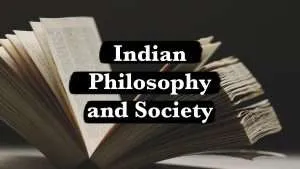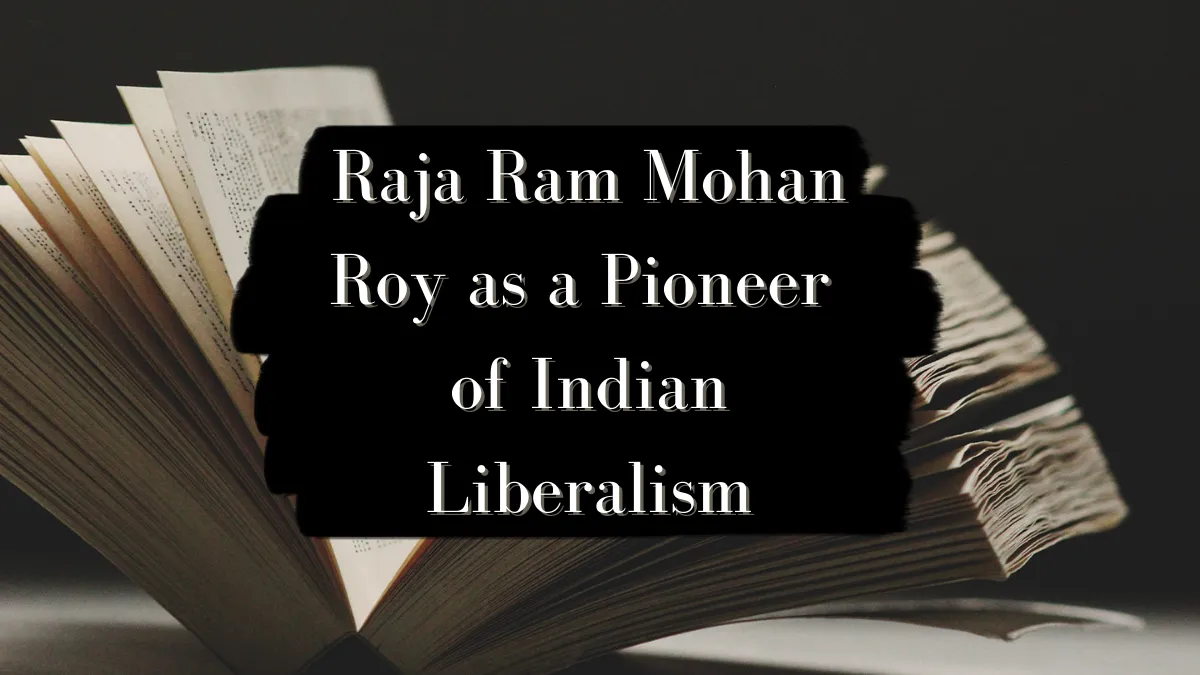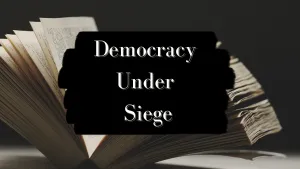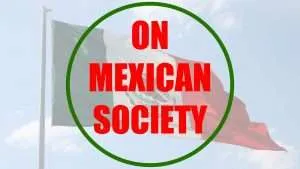Like Locke, Grotius, and Thomas Paine, Raja Ram Mohan Roy accepted the immutable sanctity of natural rights. He believed not only in the natural rights of life, liberty and the pursuit of property, but also championed the moral rights of the individuals. His theory of rights, however, was constructed in the prevailing Indian framework of common social good (lokasamgraha), and Indian liberalism.
Thus, although an exponent individualist theory of rights and freedom, he also advocated state legislation for social reform and for educational reconstruction. Hence, to the concept of natural rights, he added the notions of social utility and human welfare to the tenets of Indian Liberalism.
Raja Ram Mohan Roy and Liberty
Raja Ram Mohan Roy had a passionate attachment to the concept of liberty. He urged the necessity of personal freedom and in his private dialogues also referred to the idea of national emancipation. Liberty is the priceless possession of a human being and, hence, Raja Ram Mohan Roy can be portrayed as a magnificent champion of personal freedom.
But liberty is also needed for the nation. He sympathised with the demand of the Greek and Neapolitans for liberty. Hence, when in 1821 with Austrian help, autocracy was restored in Naples (Italy) after an abortive uprising, Roy felt perturbed.
Raja Ram Mohan Roy and Indian Liberalism
Raja Ram Mohan Roy had a keen appreciation of the uncompromising freedom of the creative spirit. He wanted his countrymen to inculcate a sturdy and robust sense of self-confidence, and was a crusader against unreason and superstition. He admired the English nation which not only enjoyed civil and political liberty but was interested in promoting freedom, social happiness and rationalism in the areas where their influence extended.
Being a champion of freedom and rights, Raja Ram Mohan Roy was a great humanist and believed in co-operation, tolerance and fellowship. He wanted that the traditional shackles which had so long imprisoned the mind and soul should be loosened and men must be free to build a society based on tolerance, sympathy and independence.
Liberalism and Religion
Raja Ram Mohan Roy had begun with the study of comparative religion but later came to visualize the necessity of a universal religion; but even the concept of a universal religion was not the final embodiment of his thought process. Finally, the formulated the scheme of a fundamental spiritual synthesis stressing the unity of religious experience based on the worship of a monotheistic God. Thus he carried forward the tradition of social and spiritual synthesis stressed by Kabir, Guru Nanak, Tukaram and other saints.
Raja Ram Mohan Roy was an emancipated man and hence he believed in universalism and regarded humanity as one family with the different nations and tribes as its branches.
Final Thoughts on Raja Ram Mohan Roy
In conclusion, Raja Ram Mohan Roy was a visionary who merged Western ideas of natural rights with Indian traditions, promoting both individual freedom and societal well-being. His passion for liberty and advocacy for personal freedom and national emancipation were evident. He sought to liberate Indian minds from superstition and encouraged a society built on tolerance, sympathy, and independence.
His exploration of religion culminated in a spiritual synthesis, emphasizing the worship of a monotheistic God. He promoted unity in religious experiences, reflecting the traditions of saints like Kabir and Guru Nanak.
Raja Ram Mohan Roy’s legacy as a humanist, advocate of rights, and promoter of freedom and unity continues to influence philosophical and social thought. His vision underscores the importance of upholding liberty, fostering cooperation, and embracing the unity of the human experience in a diverse world.
More Indian Philosophy and Society from Applied Worldwide

Applied Worldwide is happy to publish a blog series applying Indian philosophical ideas to the current context. Our Indian Philosophy and Society series is written by Adhrish Chakraborty and includes articles using the philosophies of M.N. Roy, Rabindranath Tagore, and Mahatma Gandhi.






